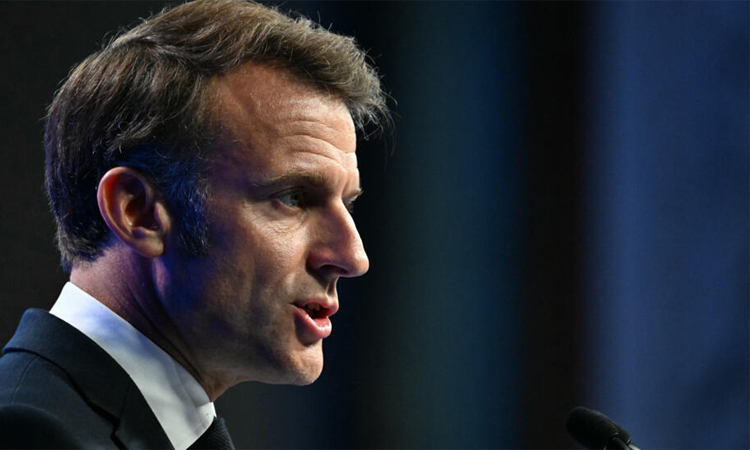News Flash

PARIS, June 13, 2025 (BSS/AFP) - French President Emmanuel Macron, who on
Friday defended Israel's right to protect itself, spoke by phone to Israeli
Prime Minister Benjamin Netanyahu following a spike in diplomatic tensions,
the Elysee said.
The French presidency said the phone conversation took place but did not
specify the content of the exchange with the Israeli leader.
Relations between Macron and Netanyahu have been strained in recent months
over Israel's blockade of Gaza and France's plans to recognise a Palestinian
state.
Israel pounded Iran in a series of air raids, striking 100 targets including
nuclear and military sites as well as killing the armed forces' chief of
staff.
In the aftermath of the strikes, Macron also spoke with leaders including US
President Donald Trump and the Crown Prince of Saudi Arabia.
France and Saudi Arabia have been planning to co-chair a UN conference on a
two-state solution for Israel and the Palestinians next week in New York.
Macron was expected to speak on the issue on Friday, but his speech was
cancelled. Instead, he will address reporters Friday evening.
Earlier Friday, Macron said Israel had the right to defend itself and ensure
its security but also called for de-escalation.
"To avoid jeopardising the stability of the entire region, I call on all
parties to exercise maximum restraint and to de-escalate," he said on X.
Macron spoke after convening a meeting of the National Defence and Security
Council.
"All necessary steps will be taken to protect our nationals and our
diplomatic and military missions in the region," Macron said.
France's foreign minister also urged restraint.
"We call on all sides to exercise restraint and avoid any escalation that
could undermine regional stability," Jean-Noel Barrot said on X.
Iran has gradually broken away from its commitments under the nuclear deal it
struck with world powers including the United States and France in 2015.
The landmark deal provided Iran sanctions relief in exchange for curbs on its
atomic programme, but it fell apart after the unilateral withdrawal of the
United States during Trump's first term in 2018.